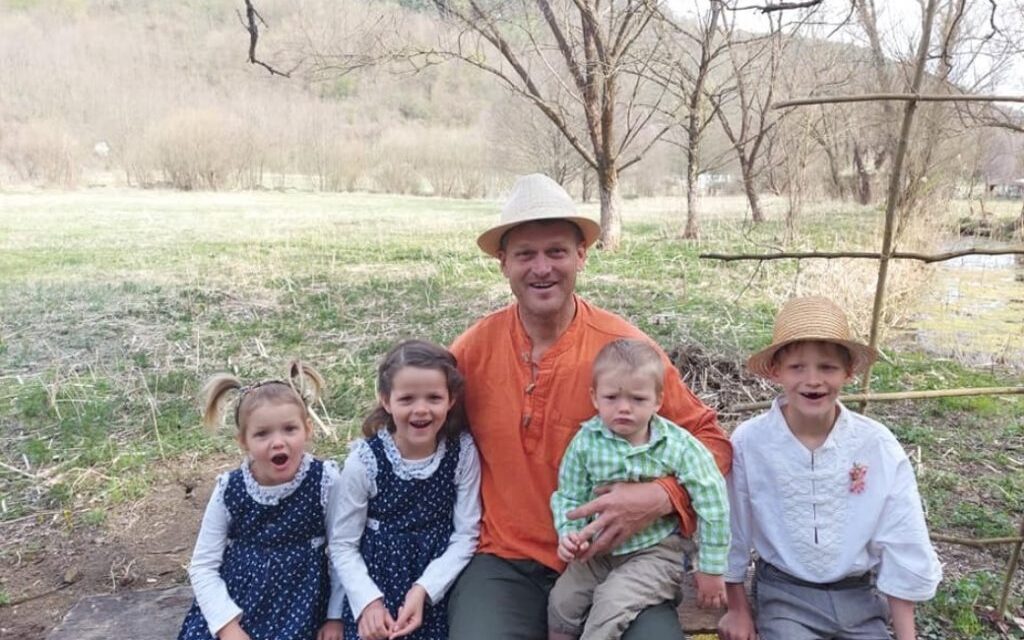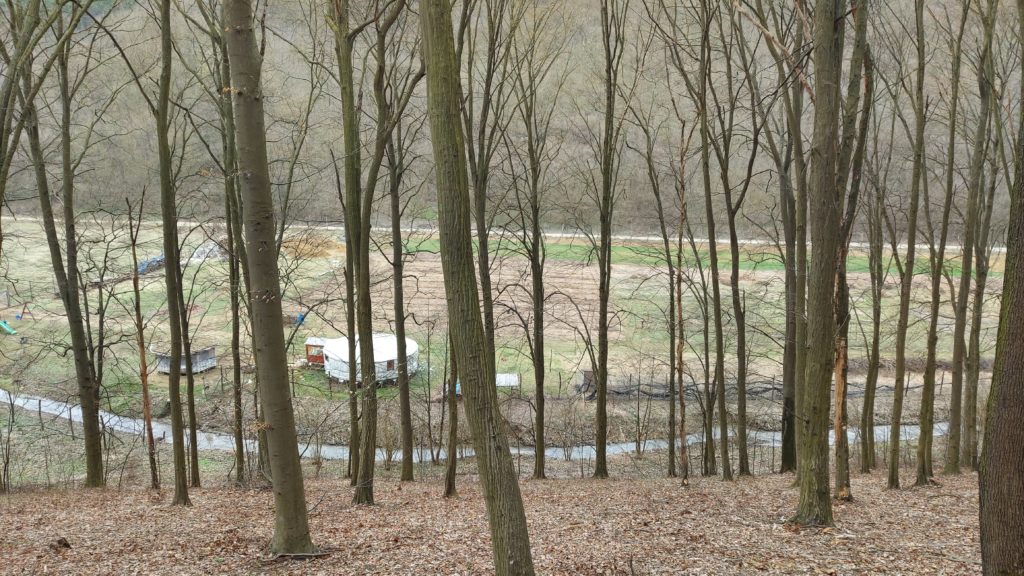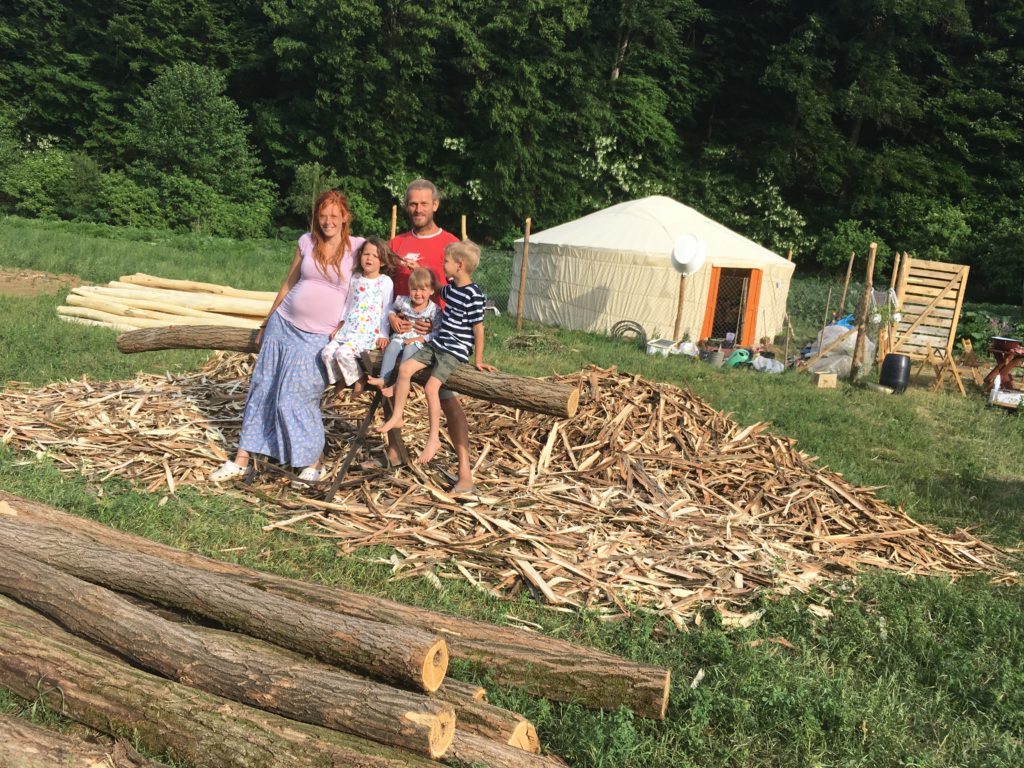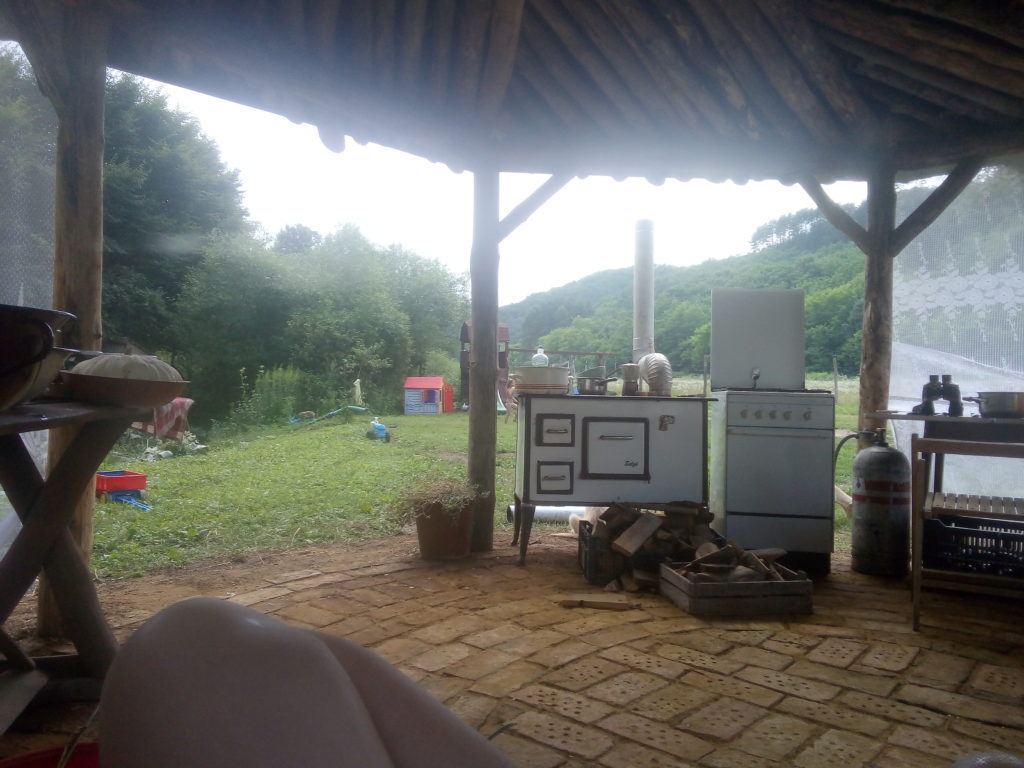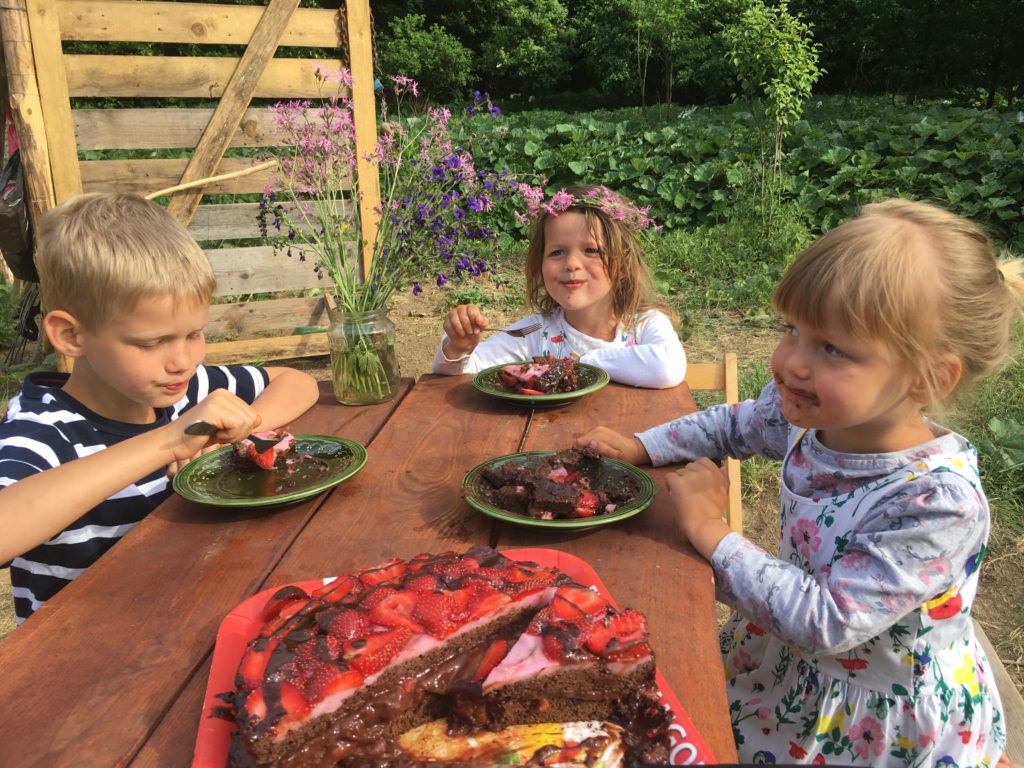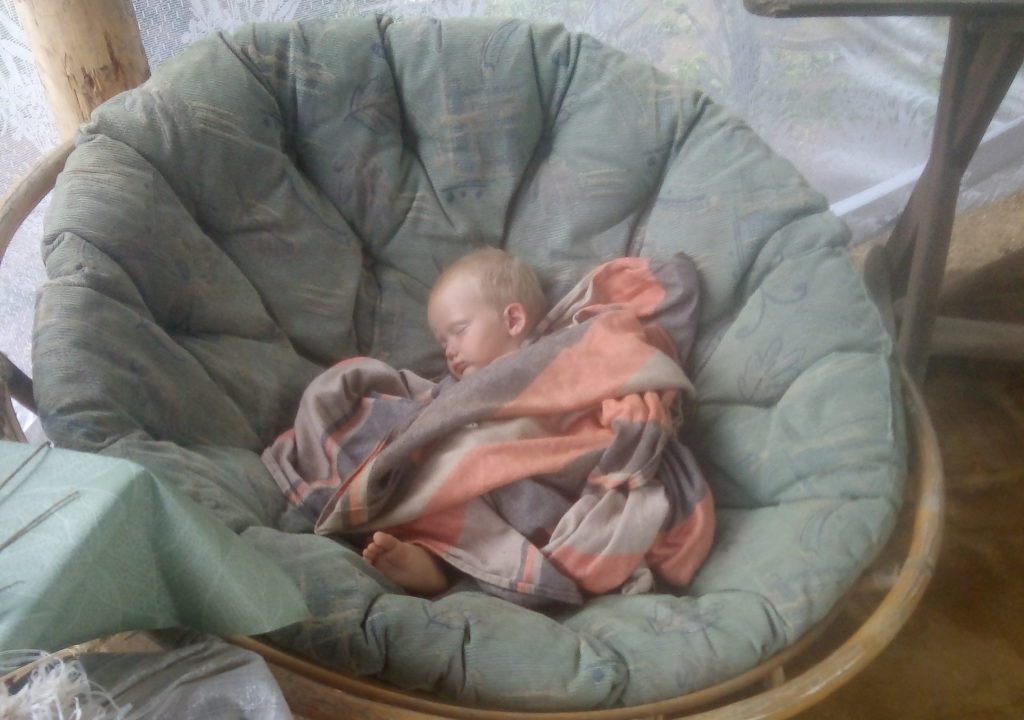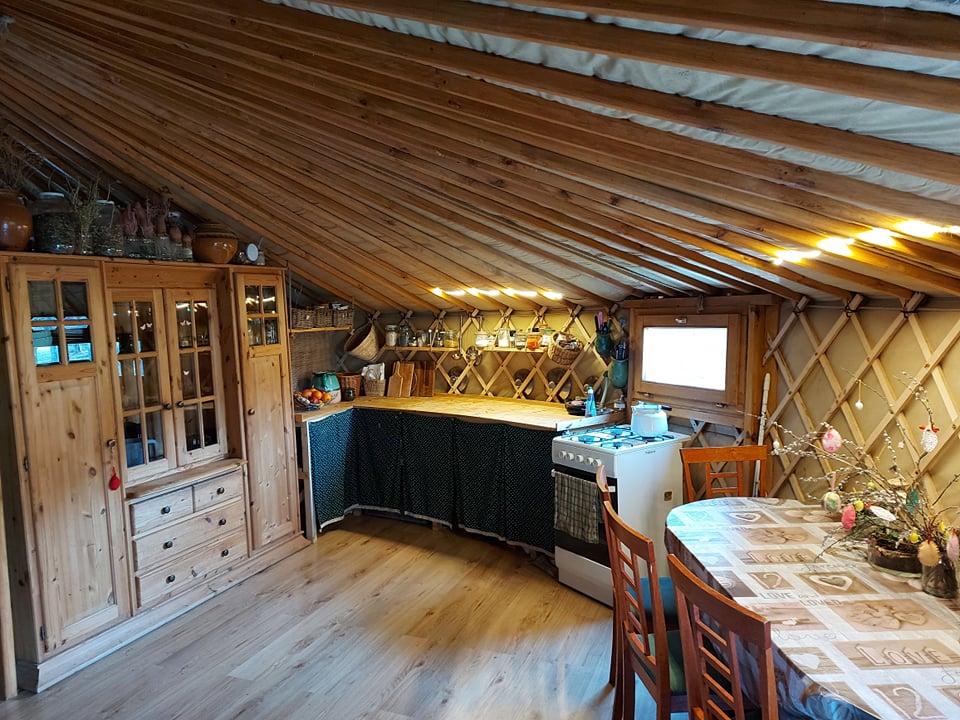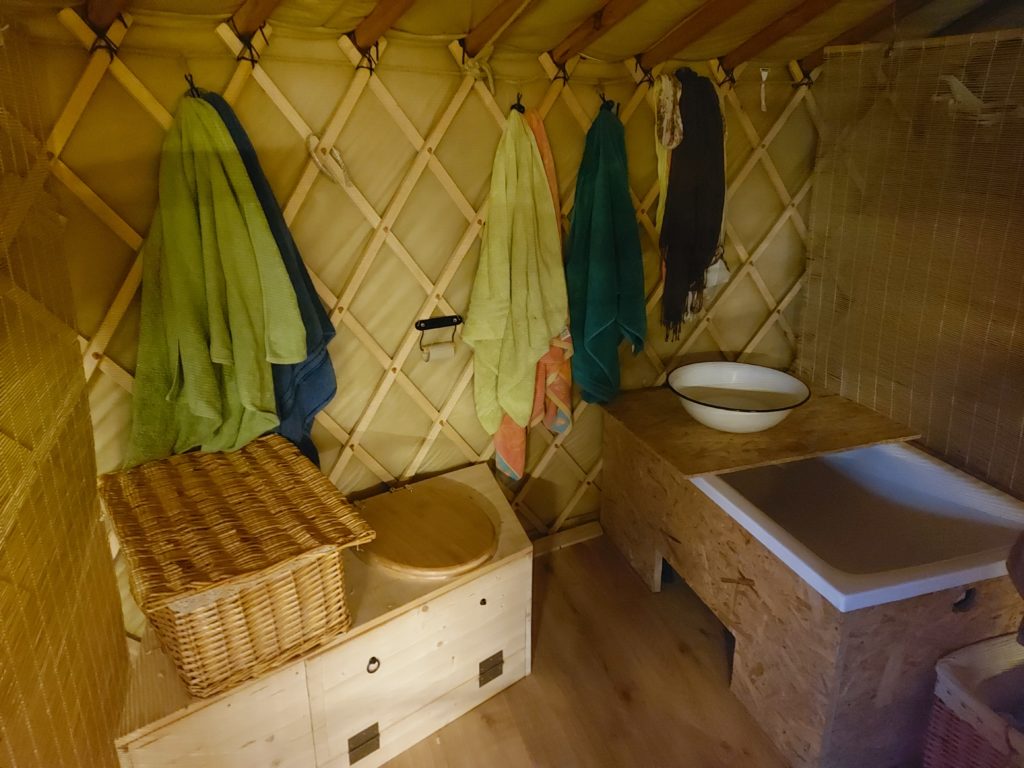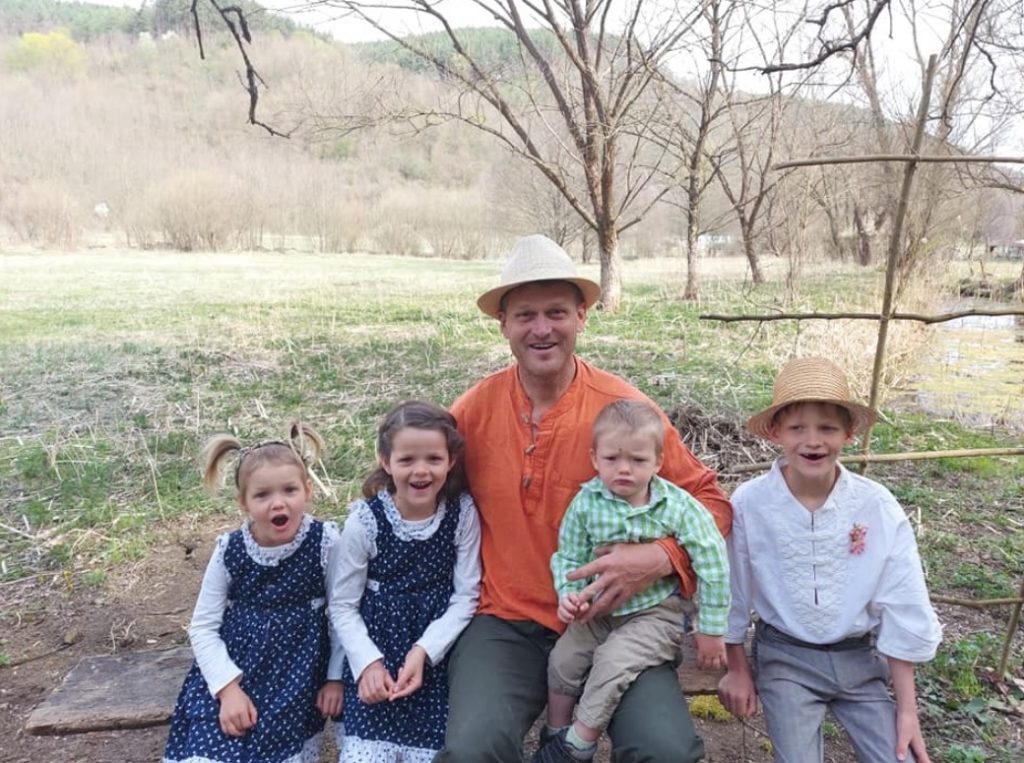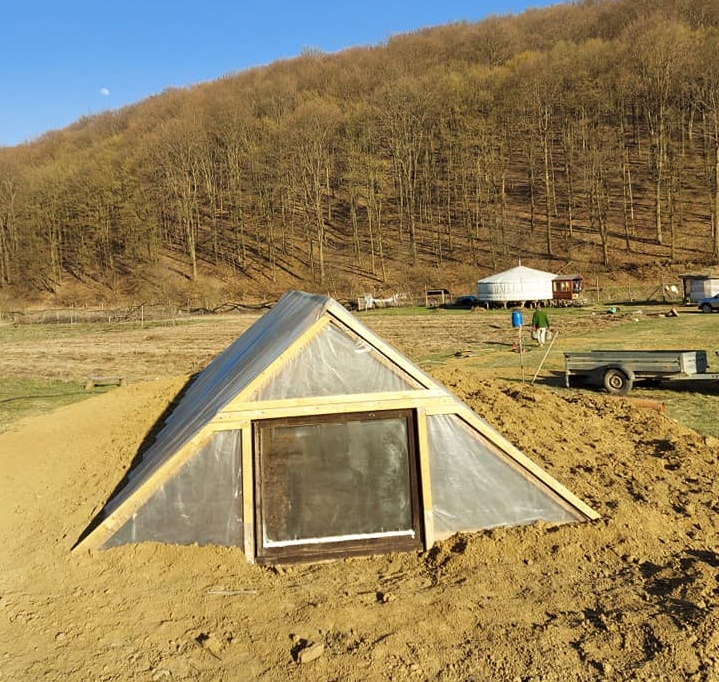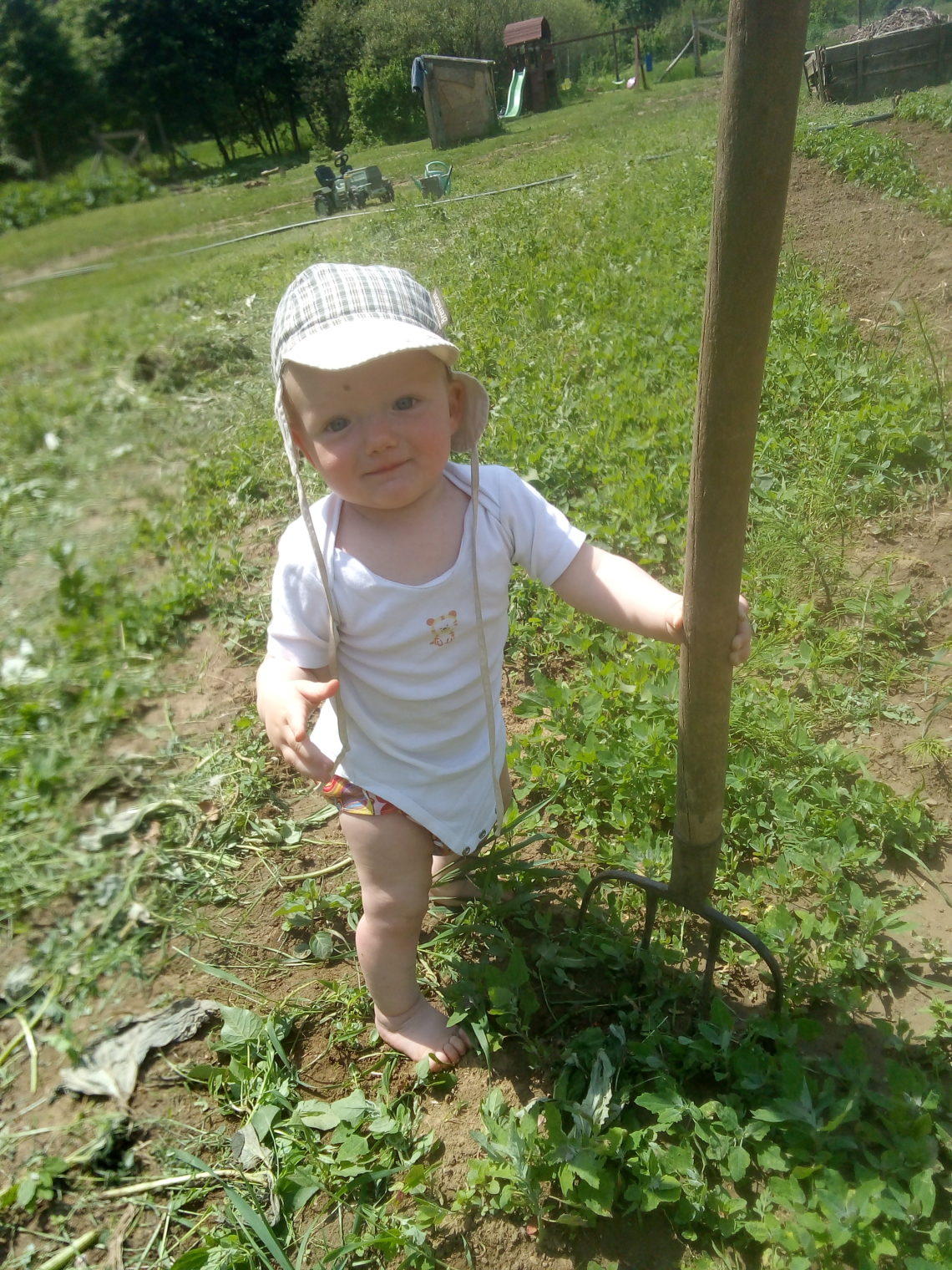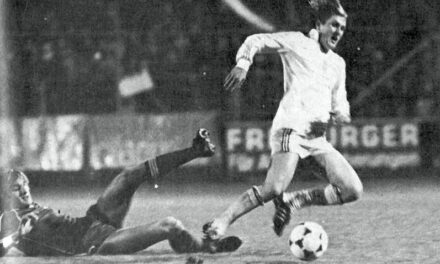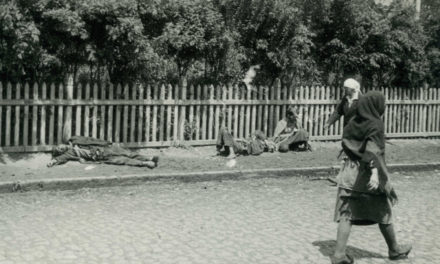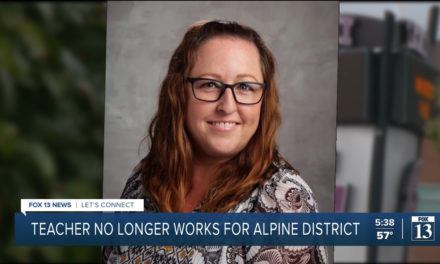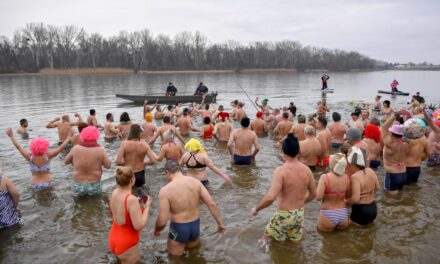Anita and Pál live in peace with mother earth, as their children say, in God's field. In fact, next to the Istenmeze of the Heves counties, in the soft lap of nature, in a yurt. But the beginning was difficult.
They had to prove to the authorities that they are not producing drugs in the gentle lap of nature and that everything they do is for their children. Today, everyone knows about the "jurts", that a busy father moved with his wife and four children to the forest of God's Meze. Nature has accepted and teaches them, and the family is grateful for the lessons. They are happy.
Anita Rozgics-Kiss and her husband, Pál Rozgics, lived with their three children for a long time in the village of Bugyi in Pest County, where they managed to build a thriving small farm in five years. They renovated a neglected house little by little, built an oven, a grain storage, and put their daily ingredients on the table from their own garden. The children grew up, and they knew that they wanted more freedom, more space, and a life closer to nature. In November 2017, they decided that they would no longer wait for a miracle, money, or stardom, but would take control of their own destiny.
The introduction written on Facebook - which was shared by more than two thousand people - we received more than a hundred letters and made many new friends. Many just congratulated them and told them that they too wanted a similar life, but did not dare to take the step. Others recommended cool, beautiful landscapes, but there wasn't really anything concrete among them that there would be land for rent, arable, and livable at this and that geographical number, or to the south or north of this or that village, - began Anita.
What gave you the direction for the final solution?
They wrote about eco-villages, small communities, and forest farms, and we were also preparing to make larger rounds in the country. In the end, it turned out to be only three smaller turns. One day, a well-known woman living in a yurt called me and suggested that we contact the municipalities, because in many places they can't keep the remote, wild areas clean, to see if there are any renters among them. That same day, we laid down on the map and looked for the 98 small villages of our country marked in dark green, hoping to find our future home among the settlements near the forest.
It was difficult?
I was able to send 33 letters in one breath. Among them was Istenmeze in Heves county, from where the mayor reported back the next day. We were there two days later. The children, when we told them that we were going on a trip to Bükk, already shouted that "it's good, we're going to move to God's field!". And so it happened.
That went fast.
At first we thought that just spending the summer next to the forest in a yurt, cultivating a piece of land next to it, and going home from time to time would be a much bigger gift to the children than anything we could buy for money in the village. So on April 24, 2018, St. George's Day, we moved to the valley 3.5 kilometers from the village, next to the stream, on the edge of the forest. After a month spent in a wonderful yurt, we decided that this is the only way we want to live, we liquidated everything in Pest county.
Did they finally say goodbye to Bugi?
Roughly every two weeks, we wanted to go back to Bugyi to wash the dirty clothes, replenish our food supply from the cellar, and look after the uncle whom we had adopted there and who was looked after by my mother-in-law while we were away. On our second such trip, it became obvious that we didn't want to travel. The children didn't enjoy the three-hour car ride either, the uncle also felt alone, and we soon got tired of being dragged along.
Did they take the uncle with them to Istenmeze?
We decided to sell everything and rather buy the uncle a house in Istenmeze, so that he would be close to us, where we could also grind flour, charge the phone, store grain, where there is a cellar, so that we don't have to solve everything immediately, but have a safe point until our farm is ready. In two months, we sold our house, moved out, bought another one in Istenmeze, which we started renovating, built a foundation for our future yurt, fenced 2 hectares and planted one hectare.
Meanwhile, they looked forward to the blessing of children.
When we decided to embark on the path of our dreams, our fourth child was born. With him under my heart, we set off on the great adventure. We spent the summer in a yurt borrowed from our friends, but it was time to have a stronger, more protected home for the arrival of the baby. In the spring, we already ordered a double-insulated winter yurt, the floor of which had to be prepared, and we wanted to create a bathroom in the house we bought in the village for the birth of the baby. Just like in many parts of the country, here in the north there is also a shortage of professionals, we begged many masters to come. My husband was the assistant for most of them, and he had to stand in many places at the same time: in the house, at the base of the new yurt, in the garden, because we had to produce food and make a fence to protect the crops from wild animals. What was very important was that our new, winterized yurt was completed a few days before the birth of our son, Buda, in August 2018.
From what he says, it seems that the beginning was not easy.
Despite the fun summer adventures and the proximity to nature, the first year was the most difficult period of our lives. It was in this situation that the authorities came to us. Due to a report, the police came first, then child protection, but they also tied us to our fence, and my husband even had to declare at a municipal board meeting that we don't grow drugs up here. It was a period full of sleepless nights and stomach cramps. We saw with sadness that everyone was afraid of something: who was afraid of his interests, his profit, who was afraid of his work, prestige, who was afraid of his hunting grounds. We scared our children. Our son was 6 years old at the time, and our daughters were 4 and 2 years old. We wanted the best for them, real childhood, untouched wilderness, lots of attention, family gatherings. Instead, they got an environmental study, strangers in their home who question their parents' words, and a lot of unnecessary things, stolen time.
How did they "get out" of this unpleasant situation?
Several times we felt as if we were treated as criminals, as irresponsible parents. Fortunately, over time, all of this was concluded, clarified, and people got to know each other. Of course, you can understand the concern of the authorities, who did not know what to think of our lifestyle, they were afraid that if one of us was taken by the bear, they would be responsible, so they were obliged to investigate the matter ex officio. Fortunately, when our little boy Buda was born, everything fell into place: the guardianship office made sure that we did not endanger our children - and perhaps they understood that in terms of attention, quality of food and life, time spent with their parents, quality of air and water, they receive much more than average Hungarian children.
After long correspondence and negotiations, all offices found our fence in order, and the basket of vegetables brought in as a sample and the honest speech convinced the representative body that it was not criminals who had moved into the forest, but a busy father with his family.
In a yurt.
Yes. Our yurt stands on stilts at a height of 90 centimeters, and we live in it in the same way as in a house: here, too, there is a kitchen, bathroom, bedroom, children's room, which are separated by cupboards. Of course, the guest looks for the sink, light switch, or toilet tank in vain: we have no electricity or utilities. Instead, there are candlelit dinners and evening stories with headlamps.
And the water?
We can afford the whole family to bathe in spring water. All of this only requires so much extra work that the water has to be brought here from the source 150 meters away and heated. This is how we know exactly that our family of six consumes sixty liters of water a day. This includes bathing, cooking, washing dishes, and our drinking water. Every drop of it goes back to nature, even the contents of our compost toilet, which will fertilize our garden in two years.
- Rozgics family archive
- Rozgics family archive
- Rozgics family archive
- Rozgics family archive
- Rozgics family archive
- Rozgics family archive
- Rozgics family archive
- Rozgics family archive
- Rozgics family archive
- Rozgics family archive
Phone?
Although it's hard to imagine in today's world, we don't really have the field strength. Here and there, in spots, under suitable weather conditions, the phone rings by accident, the strictly simple, "dumb" device, a message arrives, but the most common is that if one's daughter wants something, then up and down he's a fool, he asks back every third word... This is especially unpleasant in winter, when the children are sure to come up with something ugly inside, such as painting, sticking food, but the least is that our little boy Buda smears a bread with jam on the yurt door. Under such circumstances, we think twice about whether the time spent searching for field strength has any meaning or value. The big advantage of this, however, is that the human brain and subconscious mind are not burdened by unnecessary information, there is room for clear thoughts, planning, and paying attention to each other. When something absolutely needs to be done, we usually go into the village.
Have you dreamed of such a life?
Despite the already mentioned inconveniences, there was never any question in our minds that this was not our place. It took a year for me to feel that the landscape accepted us. As the buzzards bit, then the harlequin ladybugs covered everything, when the wind tore the blanket film from the yurt base, then the rain soaked the floor, when 60 kilos of vegetables for zakuska spoiled, or when the always trickling spring seemed to have dried up - I felt like we were trying. We tried looking for mushrooms, the clay soil, the stream that pours out every week. And suddenly it was over. It was as if we had tamed the unbridled nature around us, which accepted us together with children's squeals, the noise of work, singing and shouting. To do this, of course, we had to unravel the great secrets of where the spring water flows, where we need to embank the stream, how to fill the clay with life, and many, many kilometers to find out that the best mushroom spot is not on the other side of the mountain, but on the you have to look for it at our yurt.
Did everything fall into place on mother earth?
Everything was done slowly: that particular fence, for example, the construction of which was suspended, was finished by my husband in January. On that particular holiday, when it was finished, we measured -17 degrees, the nail barely wanted to go into the wood that was frozen to stone, the sawdust kept freezing on his clothes... This year, on our third spring, our sunken warm bed - walipini in the Indian word -, the "little our hatchery", which was included in our first year's plans, in which the seedlings grown in the yurt grow beautifully. At the same time, we have already developed many things that are necessary for our everyday lives, but of course there are also many things - for example, the washing machine that works with stream water - that are constantly being pushed into the five-year plans. In addition to a lot of work, this year we feel that we want to devote time to people who are making similar plans, who are interested in the example of how to live - not live or survive - with four children in the middle of nowhere.
How about the kids. Bendegúz, Réka, Boróka and Buda. What's up with them?
They worship God's field, as they say. Buda is at home with me, this year he is already walking up to the spine on his own little legs. Since we live close to the national border, our older children attend a Hungarian elementary school and kindergarten in Slovakia. We learn a good part of the curriculum at home, following the curriculum, for which Bendegúz already receives grades. During the semester, for example, the color was single, which means excellent. The children have integrated well into the local environment, where the village children are very happy to meet the natives, they mutually teach each other "beautiful Hungarian speech", local dialect and Slovak language.
Maybe the last question is tactless, but I'm still curious, what do they do for a living, how much do they earn?
As a mother, the most important thing for me is the care and occupation of our four children, and there is plenty to do at home on a daily basis. My husband doesn't work anywhere for money, and yet, I don't know many people who would work more than him. We produce 95 percent of our food, and what we still need - salt, sunflower oil, honey, one or two types of grain, which we are not yet successful in growing - is covered by the family allowance we receive after the children. A good part of it is mostly taken up by the maintenance of the car, but it is returned to the system from which it originated in a short way. Instead of the world of money, we prefer to learn from nature and each other. Sometimes it is quite hard, but we are grateful for the lessons.
Featured image: Rozgics family archive

